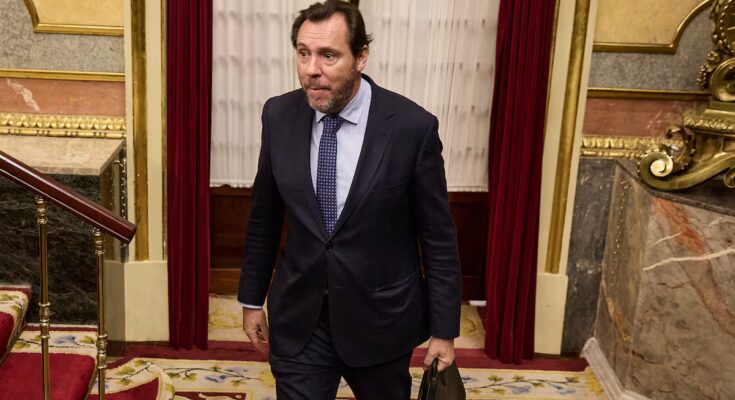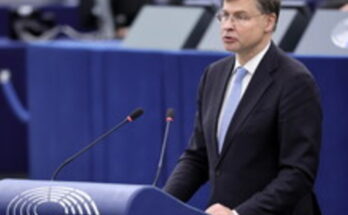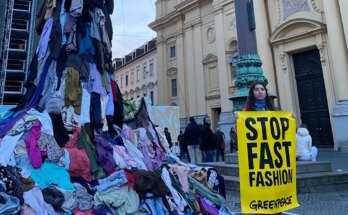The new law on sustainable mobility approved Thursday at the Congress of Deputies will make Renfe’s pockets scratched again every time a high-speed or long-distance train arrives at its destination more than 15 minutes late. The People’s Party managed to present an amendment to the bill, supported by its absolute majority in the Senate, in which it requests the recovery of the previous remuneration policy of the public operator, reformed in 2024 with fewer guarantees for the traveller.
The text now specifies that “the Government will recover, starting from 1 January 2026, Renfe’s commitments regarding punctuality and reimbursements prior to the changes made in July 2024”. “Compensation for 15 and 30 minutes of delay, respectively equal to 50 and 100% of the amount, in high-speed and long-distance services” will be guaranteed again. An extreme that will meet resistance from the government, according to sources in the Ministry of Transport, on the understanding that Renfe would compete on lower terms with its rivals Iryo and Ouigo, which are not affected by the change in the law. In Transport, legal loopholes will be sought in defense of the AVE operator and Avlo.
After Renfe’s controversial compensation schedule change, its high-speed trains must arrive at their destination more than 60 minutes late for travelers to be eligible for reimbursement. The operator refunds 50% of the ticket price for a one-hour delay and refunds 100% only if the train arrives at the destination station 90 minutes or more after the scheduled time. In addition to the possibility of reimbursement in cash (or on a bank card), Renfe has added the possibility of returning 200% of the amount to which you are entitled but in points to be used on other trips.
Socialist MP Cristina López Zamora said on the stage of Congress that the amendment concerning Renfe “punishes the public by imposing unsolicited compensation on competitors.” The response of the popular Ana Martínez Labella was that “punctuality is also a right”, recalling that the train has been in chaos since Óscar Puente entered the Ministry of Transport.
The modification of the articles of the Law on Sustainable Mobility will also mean that a revision of the environmental labels of the General Directorate of Traffic will be studied and that the concession map of the major bus lines will be reviewed to ensure that none of the locations served so far are left behind.
Aena sees its 12.9 billion plan as safe
Aena and its pricing policy take a breather after Congress this afternoon rejected the amendment to the Sustainable Mobility Act that called for a price freeze at airports. The initiative, promoted by the People’s Party in the Senate, proposes a regulatory framework strongly requested by airlines for the regulated period 2027-2031. The text shook the price of Aena on the 6th and provided for the imposition of new incentives for traffic at regional airports, as requested by the leader in Spanish skies, Ryanair.
The PP’s setback in the Chamber of Deputies, where it only had the support of VOX, allows the airport manager to move forward with the intention of launching a third Airport Regulatory Document (DORA III) in which investments in the regulated part of the activity are planned for almost 10,000 million euros until 2031, as announced on September 18 by the President of the Government Pedro Sánchez. A figure charged to tariffs which would be completed with investments in the commercial part of up to a total of 12.9 billion euros.
“It’s about preventing flying from becoming a luxury and bringing regional airports out of a coma,” popular deputy Ana Martínez Labella defended before the vote. But the PSOE was accompanied by its investiture partners (Sumar, Junts, ERC, Bildu and PNV) against the change to the Sustainable Mobility Law, which in Aena was interpreted as a torpedo launched by the opposition. The PP’s amendment therefore remained an attempt to shape airport policy, with 178 votes against, 169 in favor and two abstentions. Nor was it possible to wear out the government by recalling the bailouts of Air Europa or Plus Ultra during the pandemic.
Aena has opened a consultation period with airlines on its macro investment plan. The third DORA should be realized in September 2026, after the supervision of the Civil Aviation and the CNMC, with expansion projects in more than a dozen airports (Madrid, Barcelona, Alicante, the two of Tenerife, Valencia, Malaga, Menorca, Ibiza or Bilbao, among others) and a tariff route (also air traffic and operating costs) for which the company led by Maurici Lucena will have a free hand.
This has not been the case in recent years. Between 2015 and 2025 Aena was forced not to increase prices in compliance with Law 18/2014. This was a transitional period that will end in 2026, when a 6.5% tariff increase is already expected. The rule was articulated shortly before the airport operator’s listing on the stock exchange, with Mariano Rajoy’s PP in government. The freezing was possible, Aena sources claim, thanks to the fact that large investments had already been made such as the construction of the T4 in Barajas or the expansions in Barcelona-El Prat and Mallorca. With ten years of fare constraints, the goal was to attract air traffic and fuel the tourism engine in the wake of the financial crisis.
“If the amendment were successful and the Cortes Generales limited by law the remuneration of Aena’s aeronautical activity without any rational economic motivation, the damage to the Spanish airport system, to Aena and to its shareholders could be considerable,” the company also indicated in a statement reacting to the popular amendment. The top management of the airport manager does not see any room for tariff blocks or reductions at the moment, given that investments will multiply more than four, going from an average of 450 million per year to around 2,000 million euros in the regulated sector. However, President Lucena recently highlighted Aena’s ability to maintain a pay (part of profits intended for the payment of dividends) by 80% and implement the DORA 3 projects without penalizing credit quality. The airlines themselves believe in the possibility of lower fares, seeing the foreseeable increase in air traffic as support for Aena’s greater investments.
The listed public company underlines, in defense of the competitiveness of its prices, that the average fare is 10.35 euros, a figure lower than the 11.11 euros set in 2015 (in 2026 11.03 euros per traveler will be charged). When taking into account the effect of inflation, the average price charged to airlines has decreased by more than 36% over the last 11 years. The public also defends itself from pressure from airlines, especially Ryanair, with information on the evolution of air tickets: they increased by 28% on domestic flights and by 9% on international ones in the period from summer 2022 to the summer 2025 season. In the same three years, fares increased by 4.6% in Spain.



